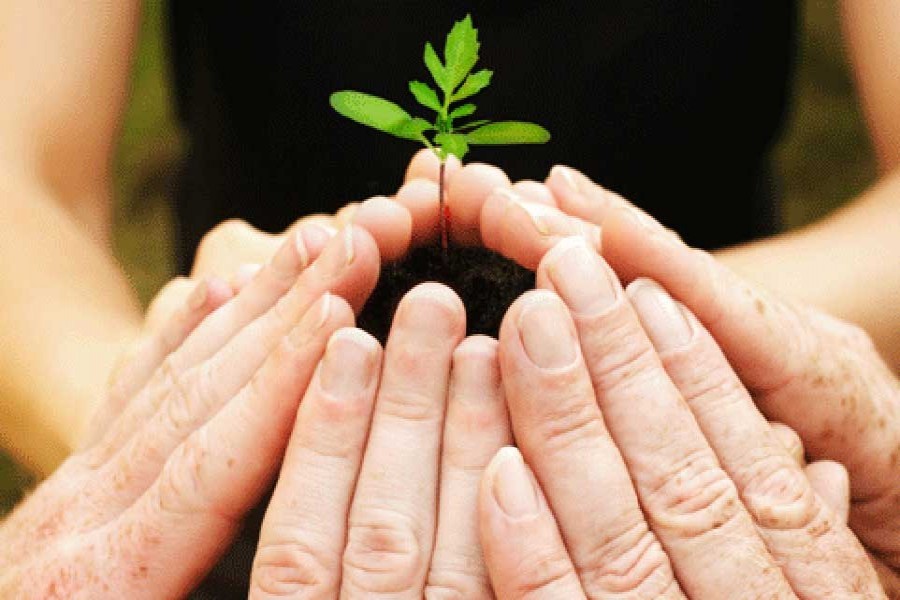
Published :
Updated :

Bangladesh needs to strengthen the government's institutional capacity to support and coordinate extreme poverty eradication initiatives being carried out by the government and civil society organisations. In this process, there could be a permanent secretariat within the Planning Commission to spearhead the efforts to eradicate extreme poverty. This was stated by the country's policymakers, economists, researchers and development activists at a recent gathering in the city.
They also said the government's next five-year development plan must prioritise rooting out extreme poverty by way of allocating more budgetary resources for the poorest of the poor. In this regard, analysts called for investing more in developing human capital and ensuring quality opportunity so that the extreme poor could become more resilient.
Riding on steady economic growth in the last one decade and strong investments in socio-economic development, the country has already seen phenomenal progress in terms of reducing the number of people living in hunger and extreme poverty.
However, despite decade-long public and private sector interventions supported by multilateral and bilateral donors, extreme poverty in Bangladesh remains high, afflicting 17.6 per cent of the population.
Amid the country's move towards uplifting the extreme poor from the destitute circle, it is also important to make sure that in the long-run they don't get stuck just above the extreme poverty line due to lack of opportunities that impede further upliftment. In fact, sporadic attention is never sufficient for quick headway against extreme poverty.
Besides sustained GDP growth rate, continuous strong engagement and commitment towards opening up meaningful opportunities for all to participate and benefit from inclusive growth will be needed in the diverse programmes tackling various dimensions of extreme poverty.
The social safety net programmes need to be designed in a more efficient manner to avoid mis-targeting and to target more and more poor.
Researchers say poverty eradication has to be sustainable, and the economy's expansion has to be participatory. The government plans to bring down the country's extreme poverty rate to 4.5 per cent by next year.
According to a World Bank study, Bangladesh's higher economic growth in the last decade did not lead to faster poverty reduction as the number of poor increased in the western region. It also said more than half of the population is vulnerable to poverty since their consumptions are close to poverty threshold of $1.9 per day.
However, the finance minister, AHM Mustafa Kamal, does not agree with the WB findings. He said the poverty scenario has improved as data used by the Bank are three years old. The minister said the government has taken elaborate programme, as stated in the current budget, to end the east-west divide. He wondered how the people who came out of poverty could be poor again.
Financial analysts insist that the policymakers should realise that the current poverty reduction approach through accelerated economic growth is not functioning. Institutional improvement is badly needed than higher investment, while the issue of governance is critical, they say.
More than half of the country's population still remains vulnerable to poverty. Common people spend over 65 per cent treatment cost from their own pockets. Increasing road accidents, natural disasters and exogenous shocks like worldwide economic recession and trade wars increased frequency of vulnerability to poverty.
So, they say, macroeconomic policy should be given priority to address the problems of poverty reduction. Poverty has come down unevenly and as a result historical gap between eastern and western divisions has re-emerged since 2010. The study shows poverty increased in Rangpur division and stagnated in Rajshahi and Khulna, while declined moderately in Chittagong, and rapidly in Barisal, Dhaka, and Sylhet.
Tackling urban poverty is critical since more than half of the poor is projected to be living in the urban areas by 2030. In 2010, 21.3 per cent of the urban population were living in poverty and 7.7 per cent in extreme poverty. Six years later, the ratios were 19.3 per cent and 8.0 per cent respectively.
Such findings are rather perplexing given the tremendous pace of economic growth during the period. About one in four Bangladeshis still lives in poverty, while almost half of those living in poverty are in extreme poverty and are unable to afford basic food consumption needs. In international standards, the rate of poverty in Bangladesh is relatively high, the report said.
However, Bangladesh has an inspiring story of reducing poverty and advancing development. Since 2000, the country has reduced poverty by half. In the last decade and a half, it lifted more than 25 million people out of poverty. Still, more than half of the population can be considered vulnerable to poverty, as their levels of consumption are close to the poverty threshold, something that the finance minister strongly disputed.
The urban poor may be better off than their rural counterparts in terms of income but worse off in key social indicators. Many poor urban households live in slums, facing poor housing, insecurity and overcrowding. There is a need for rolling out health safety-net programmes for the urban poor.
People are still at the risk of falling into poverty for lack of healthcare. Therefore, urban health safety net has become important. Social protection for the urban poor is a relatively under-focused area in policy discussions.
What is true about the real scenario is that the country's 20 million people still live in conditions considered to be ultra poor. Living on less than Taka 43 per day is extremely difficult, and for some, it can create a trap that's almost impossible to escape.
The authorities should change the poverty estimation method considering the current global and domestic socio-economic scenarios. The government and policy makers have to give more priority on inclusive development, which is most important for poverty alleviation. It is the first and the most important stage for sustainable growth.


 For all latest news, follow The Financial Express Google News channel.
For all latest news, follow The Financial Express Google News channel.